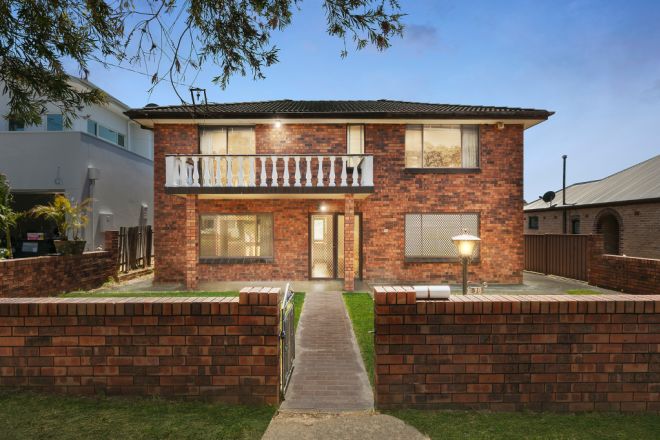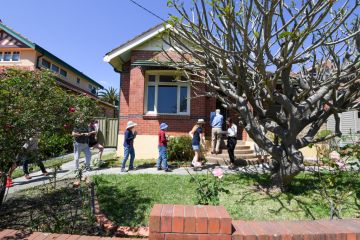‘Asking for too much’: More property owners are failing to sell
Homeowners with boom-time price expectations are failing to sell, and more listings are lingering on the market for six months or longer, fresh data reveals.
Properties in need of a renovation, overvalued homes bought at the height of the pandemic and plentiful units are remaining on the market longer than others as buyers become more selective in a tougher economy.

In Sydney, old listings increased by 6.4 per cent in the year to October, data from SQM Research showed. In Melbourne, they increased by 11.3 per cent in the same time.
Older listings are properties that have been on the market for more than 180 days – half a year.
The development comes as Sydney’s home values dropped for the first time since the start of 2023, down 0.1 per cent in October, on CoreLogic data.
Melbourne’s home values slid 0.2 per cent in the same month, bringing them down 1.9 per cent year-on-year.
SQM Research managing director Louis Christopher said an increase in older listings pointed to unrealistic price expectations as well as a supply and demand imbalance.
“They’re asking for too much compared to where the market is,” Christopher said. “It generally also means there are more sellers than there are buyers.”
A pile-up of homes listed for six months or more indicates a slowing market overall.
“Absorption rates are lower, there are less sales transaction occurring and historically when we’ve seen a defined upward trend in older listings, it has correlated highly with falls in housing prices,” he said.

Christopher said higher interest rates for longer was a key factor in further deterioration in the property market.
“It’s pretty patently obvious with no rate cut coming any time soon there are more property owners becoming negative and bleaker about their financial health and their outlook for the housing market.”
There were far fewer wallflowers in Brisbane, Perth and Adelaide because there are more buyers willing to match sellers’ aggressive asking prices, he said.
“That is in part driven by ongoing commodity profits and a surge of [cashed-up] interstate migration … and still relatively affordable housing compared to Melbourne and Sydney.”
Sydney-based buyers’ agent Michelle May, of the eponymous agency, said more properties were withdrawn, passed in or adjusted in price as vendors with unrealistic expectations were unable to sell homes in line with current market conditions.
“Ultimately, there’s a buyer for every property at the right price. But that doesn’t mean you should be buying it,” May said.
“The vendors coming in with unrealistic expectations and potentially fed that expectation by a selling agent who is trying to get the listing are going to get a rude awakening when the reality of the market is buyers are pushing back for things that aren’t worth it.”
Plentiful units and properties that needed work were often lingering on the market for months at a time, May said.

But even vendors of A-grade properties were failing to sell if they had bullish expectations as they had not accounted for current prices and mortgage rates.
Melbourne-based buyers’ agent Cate Bakos, of the eponymous agency, said a similar trend was occurring with more sellers than buyers.
She said there was little buyer appetite for two categories of homes lingering on the market.
“Apartments with high outgoings. The other segment of the market that buyers aren’t keen on buying are properties that need renovation because builders and materials are much more expensive.”
Recent changes to minimum rental standards in Victoria had been a driver for the increased number of homes that need work as investors can’t or don’t want to spend the money bringing them up to scratch, Bakos said.
“The reason we’ve got a lot of properties that need immediate work is because we’ve got a lot of investors leaving the market,” she said. “Investors are saying, ‘for me to bring these up to minimum standards would require significant rejigging of floor plans or significant spend’.
“They’re looking at their asset and thinking it’s probably easier to sell it. They’re ex-rental properties that are just a bit too rugged. It has compounded the issue [of more listings]. Purchasers don’t have an appetite for these dwellings.”
Bakos said there was also a cohort of sellers that refuse to adjust their expectation after paying for their homes at the height of the pandemic property boom.
“I’ve seen a lot of properties that are good, but they want to recoup the money that they spent buying it, and they’re not ready to accept market conditions have changed, and they need to be prepared to make a loss.”
Start the day with a summary of the day’s most important and interesting stories, analysis and insights. Sign up for our Morning Edition newsletter.
We recommend
We thought you might like
States
Capital Cities
Capital Cities - Rentals
Popular Areas
Allhomes
More






